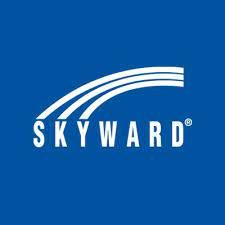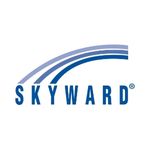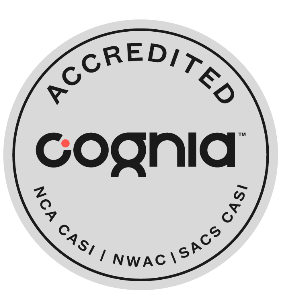- In partnership with the Utah Division of Indian Affairs, the American West Center has developed and produced these teaching guides and lesson plans for teaching the history, culture, and current issues of Utah’s American Indian tribes in the fourth and seventh grade Utah history classes and high school social studies classes. The Utah Indian Curriculum Project was developed in collaboration with the Utah State Office of Education, Utah’s American Indian Nations, and KUED-TV, which in the spring of 2009 aired We Shall Remain: A Native History of Utah, a five-part documentary focusing on the stories and ways of the Ute, Paiute, Northwestern Shoshone, Goshute, and Navajo people.
- The Utah American Indian Digital Archive (UAIDA) is a gateway to the best resources regarding Utah’s Indian tribes. With articles, books, government documents, tribal documents, oral histories, photographs, and maps pertaining to the Northwestern Shoshone, Goshute, Paiute, Utah Navajo, White Mesa, and Ute Indians, this unique archive captures the complicated history of Utah’s tribes from multiple perspectives. The project, which stems from forty years of research conducted by the University of Utah’s American West Center on behalf of Utah’s Indians, offers tribal members, students, and researchers unprecedented access to information about the rich history and culture of Utah’s native peoples.
Native American Scholarships and Funding Resources
- Each academic year, Accenture selects students who demonstrate character, personal merit and commitment to the American Indian community locally and/or nationally. Merit is demonstrated through leadership in school, civic and extracurricular activities, academic achievement, and motivation to serve and succeed.
- The American Indian College Fund was established in 1989 to provide scholarships to American Indian and Alaska Native students attending tribal colleges, and to fund and create awareness about the community-based accredited tribal colleges and universities that offer students access to knowledge and skills alongside Native culture, language, and values. The American Indian College Fund also provides scholarships to undergraduate and graduate students attending any other accredited public and non-profit private college all across the United States.
- The Undergraduate Scholarship service supports educational opportunities for American Indian and Alaska Native students by awarding more than 200 scholarships annually. They also offer a free guide to help Native Americans pursue higher education: Tools for Success — A Guide for High School Seniors, Families, Counselors and Others.
- Applications submitted by eligible Native American students each spring are reviewed by members of the Scholarship Committee, who award the competitive grants. Up to $2,000 per year is paid directly to each recipient’s college or university. Grantees must maintain a grade point average of at least 2.0 and submit grades each semester.
- AISES offers a universe of opportunities to students! AISES students choose to move fiercely forward in their educational journeys by learning and acquiring new skills that will help them in meeting the ever-changing STEM needs of our communities. At AISES, we invest more than just scholarship support into our students; we are investing confidence, trust and a large community of support and encouragement for our students. Year after year, AISES scholars bring potential and limitless possibilities for the future of STEM, each working towards advancing his or her opportunities in STEM career fields.
- Among current and past scholarship programs, sponsors have included Google, Intel, Burlington Northern Santa Fe, the U.S. Environmental Protection Agency, and many others. To ensure you receive notification of all upcoming scholarship opportunities, please be sure you sign-up for informational updates and the monthly newsletter here.
- AIS makes educational opportunities possible for qualifying Native American students who otherwise could not afford it. AIS provides more than 2300 scholarships annually. Students qualify for participation based on academic merit as well as financial need. The Result: Native American graduates who will lead their tribal communities into a hopeful future.
- Please take a moment to complete the form if you are interested in receiving scholarship assistance through AIS. Be sure to read the requirements to ensure that you qualify for scholarship support.
- The American Indian Graduate Center (AIGC) is a national private 501(c)(3) non profit headquartered in Albuquerque, New Mexico providing fellowships to American Indian and Alaska Native graduate students throughout the United States. AIGC offers this list as a courtesy to our peer organizations and students. All information regarding each of the following scholarships is submitted by each program. Please contact each of the organizations directly with any questions or concerns.
- In 1972, six American Indian tribally controlled colleges established the American Indian Higher Education Consortium (AIHEC) to provide a support network as they worked to influence federal policies on American Indian higher education. Today, AIHEC has grown to 37 Tribal Colleges and Universities (TCUs) in the United States and one in Canada. Each of these institutions was created and chartered by its own tribal government for a specific purpose: to provide higher education opportunities to American Indians through programs that are locally and culturally based, holistic, and supportive.
- In order to thrive, Native families and youth need to be healthy, have a good education, and be part of a strong and supportive community and culture. For 93 years, AAIA has been working to promote these goals and provide the critical elements that Native American Indian children and families need to live happy, healthy and productive lives. AAIA programs focus upon youth/education (scholarships, child welfare, summer camps), health (diabetes education and prevention), cultural preservation (sacred lands protection, Native language preservation), and the empowerment of tribal communities (federal acknowledgment, funding for tribal programs).
- There’s money out there to help you pay for college and there’s also guidance to help you find scholarships, learn the process of applying for financial aid and discover internships from more than 2,200 programs, totaling nearly $6 billion. Enter as much information as possible to find the most matches. Scholarship information is based on the College Board’s Annual Survey of Financial Aid Programs.
- Scholarship and grant opportunities: As stated in Title 25 CFR Part 32.3, BIE’s mission is to provide quality education opportunities from early childhood through life in accordance with the Tribe’s needs for cultural and economic well-being, in keeping with the wide diversity of Indian Tribes and Alaska Native villages as distinct cultural and governmental entities. The Bureau is to manifest consideration of the whole person by taking into account the spiritual, mental, physical, and cultural aspects of the person within family and Tribal or Alaska Native village contexts.
- The Chief Manuelito Scholarship was established in 1980 to provide scholarships to high achieving Navajo high school graduates. The scholarships are awarded based on ACT/SAT test scores and final high school grade point average (GPA). Students receive $7,000 annually to cover direct educational expenses associated with attending a post-secondary institution.
- Here you can find information on a wide range of health and educational opportunities and programs focused on Native American youth, including scholarships, internships, camps, youth commissions and organizations, and a few other fun things.
- Thinking about college, career, technical, or trade school, or graduate school? There’s so much to consider when it comes to getting ready for college: where to go, what to study, how to apply, how to pay for it all, and more. It’s never too early—or too late—to explore your options for college or career school. FSA will walk through some key steps in preparing for college and provide resources that can help you along the way. You’ll have to take the time to research and understand your options, but you don’t have to do it alone. They’re here to help!
- Federal Student Aid, a part of the U.S. Department of Education, is the largest provider of student financial aid in the nation. At the office of Federal Student Aid, our 1,200 employees help make college education possible for every dedicated mind by providing more than $150 billion in federal grants, loans, and work-study funds each year to more than 15 million students paying for college or career school. We are proud to sponsor millions of American minds pursuing their educational dreams.
- This page provides information about financial aid for Native American students. In order for a student to be eligible for many Native American scholarships, such as BIA scholarships, the student should be an enrolled member of a federally recognized tribe. Otherwise funding will most likely be denied. A Certificate of Indian Blood (CIB) card or document is generally accepted proof of membership in a federally recognized tribe.
- The Gates Millennium Scholars (GMS) Program selects 1,000 talented students each year to receive a good-through-graduation scholarship to use at any college or university of their choice.
- Serving the Nations/Celebrating the People: Indian Country Today conveniently provides an alphabetical list of scholarships that are specific to American Indian students. However, American Indian students should not just be looking for Native specific scholarships and should also apply to all other scholarships the they may be eligible to receive.
- The Indian Education-Higher Education Grant Program provides financial aid to eligible Indian students to enable them to attend accredited institutions of higher education.
- Use Keys to Success to learn all you can about how to apply for financial aid and scholarships. Understanding the application process for both will help you get the most out of the online tools that Utah Futures has to offer and get the most funding for your education!
- The National Indian Education Association advances comprehensive educational opportunities for American Indians, Alaska Natives, and Native Hawaiians throughout the United States and advocates for Native students. The association wants to make sure that every Native student knows about other funding opportunities to help them succeed in their academic career by providing a listing of organizations who offer scholarships and internships.
- The Office of Navajo Nation Scholarship and Financial Assistance serves eligible Navajo people and provides students the opportunity to achieve their educational goals. This opportunity is provided as a privilege with the intent that recipients, upon graduation, will return to the Navajo Nation to apply their learning to benefit the continuing development of the Navajo Nation.
- Partnership with Native Americans Higher Education Services. Knowing when to sign up for tests, which forms to fill out for college admission, and where to begin looking for the right school can be an overwhelming task for a lot of high school students and their families. Partnership with Native Americans offers long-term solutions for higher education.
- The Utah Division of Indian Affairs promotes positive intergovernmental relations and the government to government relationship between the State of Utah and Utah’s American Indian tribes. A listing of available scholarships is provided to inform community members of potential scholarship opportunities that could financially assist families and students who are pursuing post-secondary education.








